Entering the closed world of North Korea
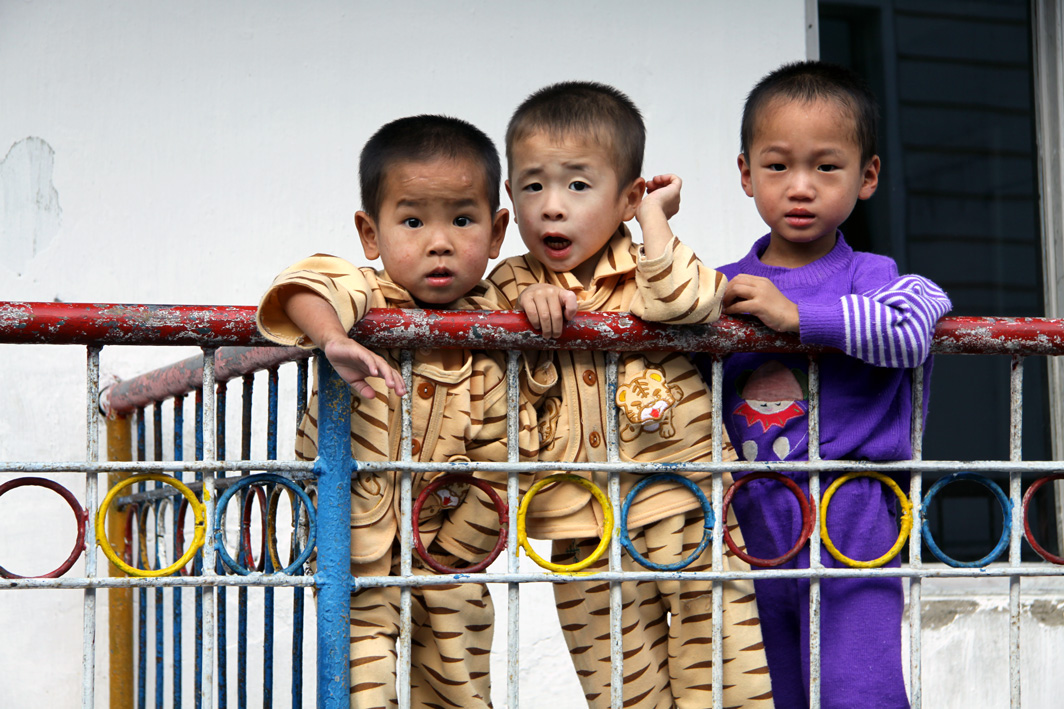
Four Swiss journalists joined a diplomatic delegation earlier this month to North Korea, a recipient of Swiss development aid.
Although the population is no longer dying of hunger, there is still a significant degree of malnourishment and the Swiss Agency for Development and Cooperation (SDC) is helping out.
“They managed to leave their country, I don’t know why they want to return here,” a Western traveller remarked as we got off the plane from Beijing to Pyongyang. He was referring to the few North Koreans who were on the flight, each of them sporting a red badge in their buttonhole. First signs of the cult dedicated to the great leader, the eternal president Kim Il-sung.
On this Monday in November, more than half of the passengers are Western, diplomats and aid workers for the most part. Some spent the weekend in Beijing, to relax a bit.
The Swiss ambassador to China, Mongolia and North Korea, Blaise Godet, is also on the flight. Based in Beijing, he travels to Pyongyang regularly for political discussions, and to meet the five Swiss residents in this country of close to 24 million inhabitants.
Evening falls on the tarmac of Pyongyong airport. The first sight is that of a giant portrait of the late Kim Il-sung. Throughout the journey, propaganda posters are practically the only splash of colour in the drab greyness, with the exception of the make-up worn by North Korean women and the azure blue uniform worn by the traffic police.
Cut off
The arrivals hall is rather welcoming, the formalities briskly dealt with, despite two power cuts that the customs officers take no notice of. We hand in our mobile phones, prepared to live for five days cut off from the world, without internet or foreign newspapers. Then we meet our guide and translator, who will watch out for us – and watch us.
The city is poorly lit, except for the monuments dedicated to the glory of the great leader. Power cuts come and go in different sections of the city. In the East-German style blocks we can make out residents using candlelight.
There is some traffic, old Soviet jeeps, Ladas, trams and a few modern cars, including some expensive ones.
“There are definitely more than before, it’s a change,” the ambassador points out. Quite a few cyclists too, but only men. The city forbids women to cycle bikes. “They are a bit scatterbrained,” our guide jokes.
No friends
The evening is spent with fellow Swiss in a restaurant. The ambassador brings the latest news from the “free” world and the residents talk about their daily life in North Korea. They all agree that they know practically nothing about people’s lives, how they live, how much they earn and what they think. To make friends with locals seems out of the question.
We stay in an enormous hotel removed from the city. It’s impossible to get out of it for a tour around the city. But it has some entertainment to offer – a Swiss boutique with watches and knives and a casino where clients, mainly Chinese, bet literally millions. Collectivist as it is, the regime of the great leader tolerates some excess.
The following days are spent on an itinerary of visits: cooperation and humanitarian aid projects, the demilitarised zone, the Kaesong industrial park.
“We can leave Pyongyang but you have to submit your request at least a week in advance,” says Francesco Rezzonico, head of the SDC’s agriculture programmes. The agency has a permanent office in North Korea.
Swiss aid
Switzerland has several assistance projects in the country. It provides hundreds of tonnes of powdered milk to the World Food Program.
Its director for North Korea, Claudia von Roehl, said that although the famine was over, more than a quarter of the population was suffering from malnutrition, especially pregnant and breastfeeding women and children.
On the ongoing question of whether Switzerland is helping the regime by helping the country, Godet had this to say: “I don’t think this humanitarian assistance should be politicised, it is by definition exempt from political conditions.” He admitted that the means of control were limited.
The journey comes to an end. The journalists still have the privilege of listening to a long-winded speech by a foreign ministry official, inciting the group to do justice to the profession.
The contents of our articles will determine our chances of getting another visa for North Korea. For example next April for the celebrations of 100 years since the birth of the great leader. The country has promised that it will be a “strong and prosperous nation” by then. The date is made.
Bern has maintained diplomatic ties with Pyongyang since 1974.
However Switzerland’s first official presence on the Korean peninsula came in 1953 when it joined the Nations Supervisory Commission in Korea (NNSC) monitoring the demarcation line between North and South Korea.
This was the first foreign deployment of members of the Swiss armed forces.
As part of the NNSC efforts, Switzerland, Sweden, Poland and Czechoslovakia had inspection teams supervising hundreds of entry points between the two countries. Originally Switzerland provided 146 armed officers but their numbers gradually reduced over the years. There are now just five Swiss representatives on the ground.
From 1997-1999 Switzerland hosted four-party talks between the two Koreas, China and the United States.
Switzerland and North Korea have carried out high level political talks once a year since 2003. The talks are held alternatively in Bern and Pyongyang.
There has been an office of the Swiss Agency for Development and Cooperation in Pyongyang since 1997.
It is manned by three Swiss and five North Koreans. Part of the complex is rented out to Hungary, which has yet to open an embassy there.
The office had a budget of SFr7.7 million but will have to tighten its belt in 2012 following the 2008 decision by parliament to end development aid to North Korea. It will concentrate on humanitarian aid.
(Translated from French by Clare O’Dea)

In compliance with the JTI standards
More: SWI swissinfo.ch certified by the Journalism Trust Initiative
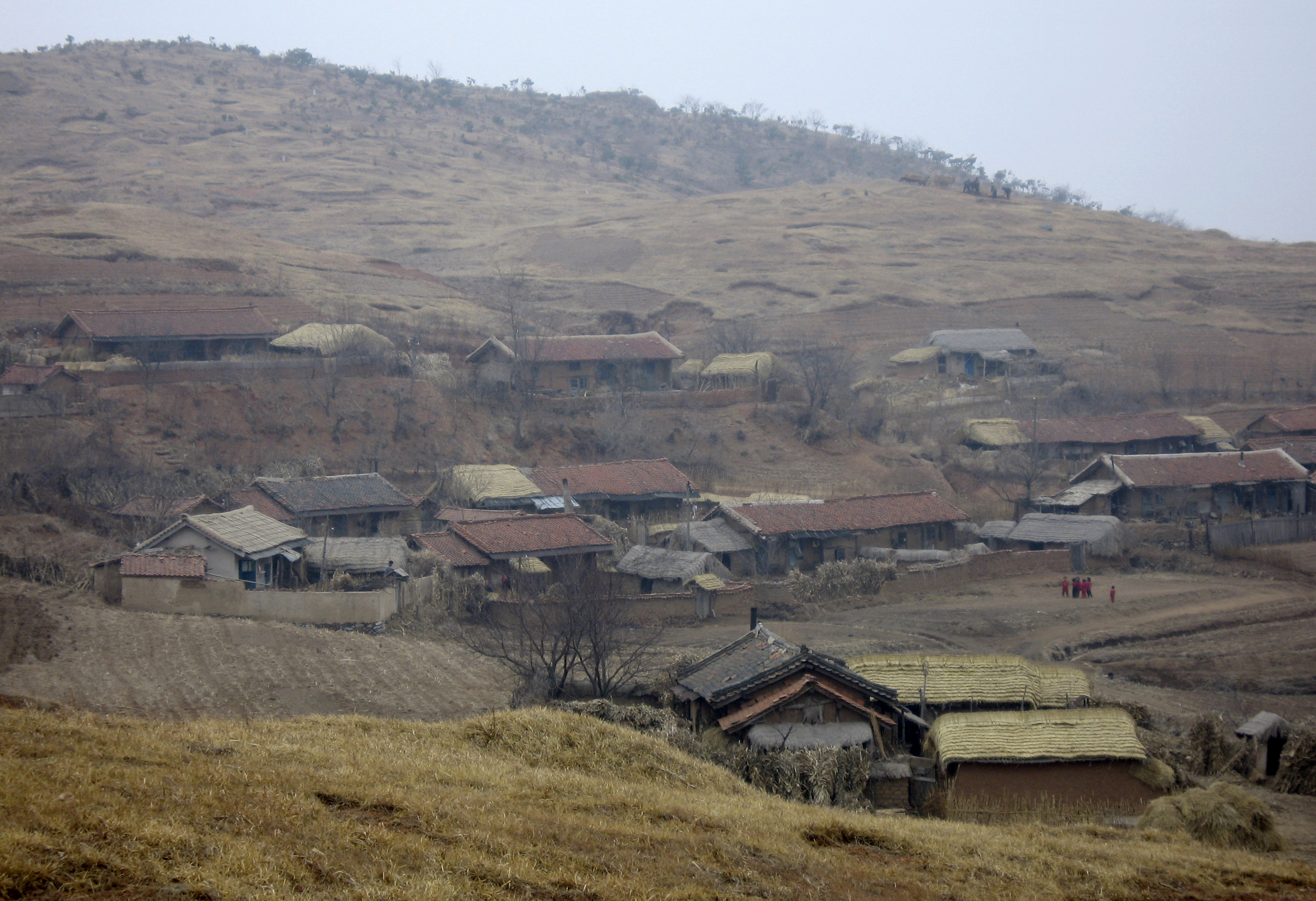
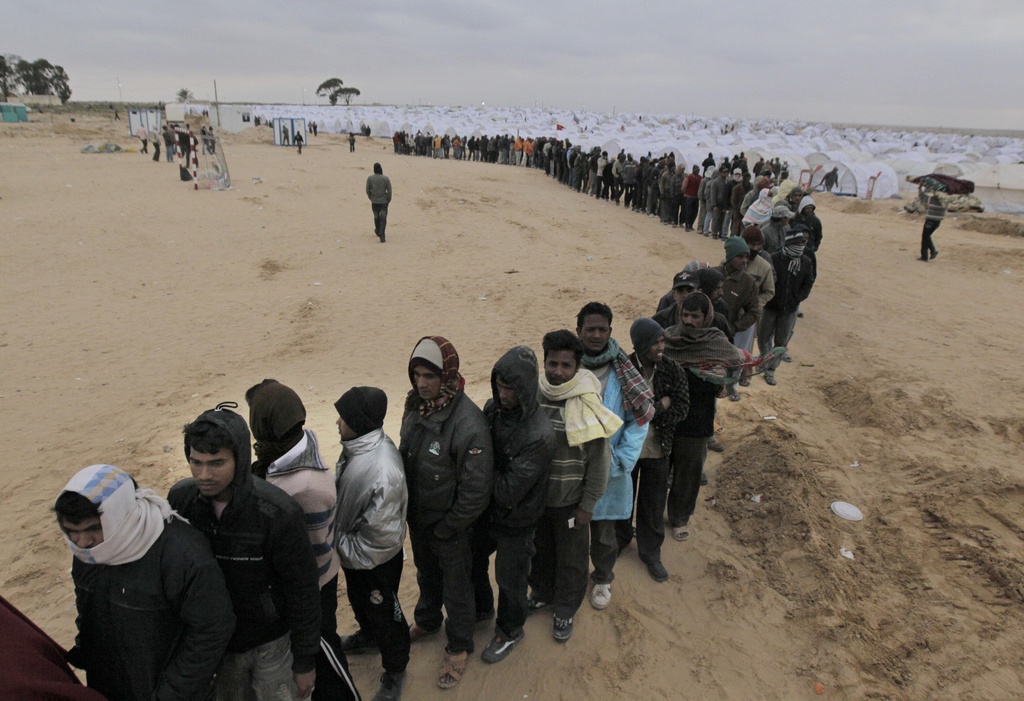
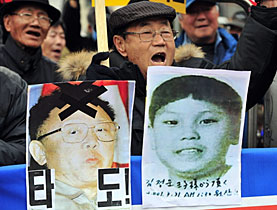
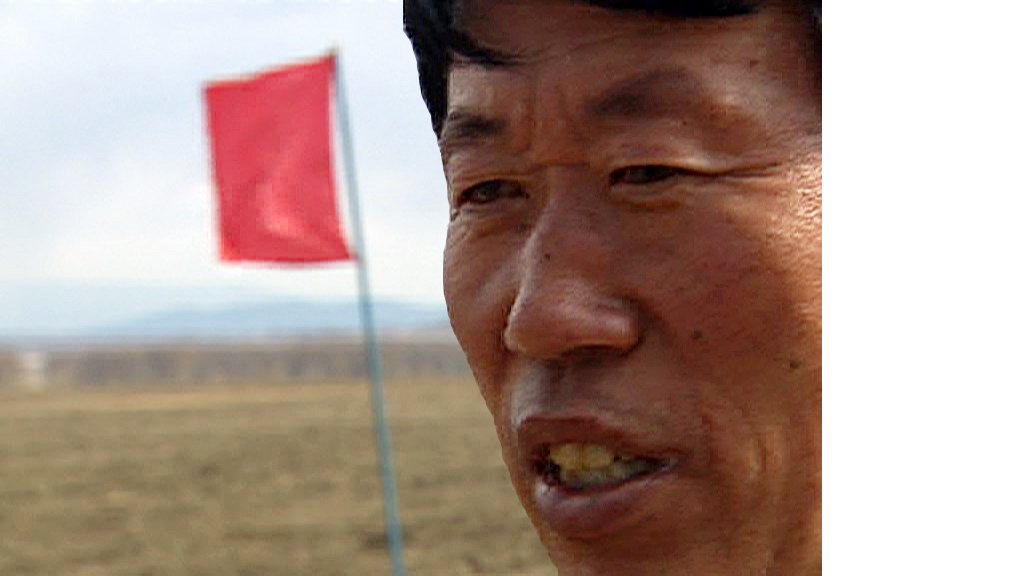
You can find an overview of ongoing debates with our journalists here. Please join us!
If you want to start a conversation about a topic raised in this article or want to report factual errors, email us at english@swissinfo.ch.